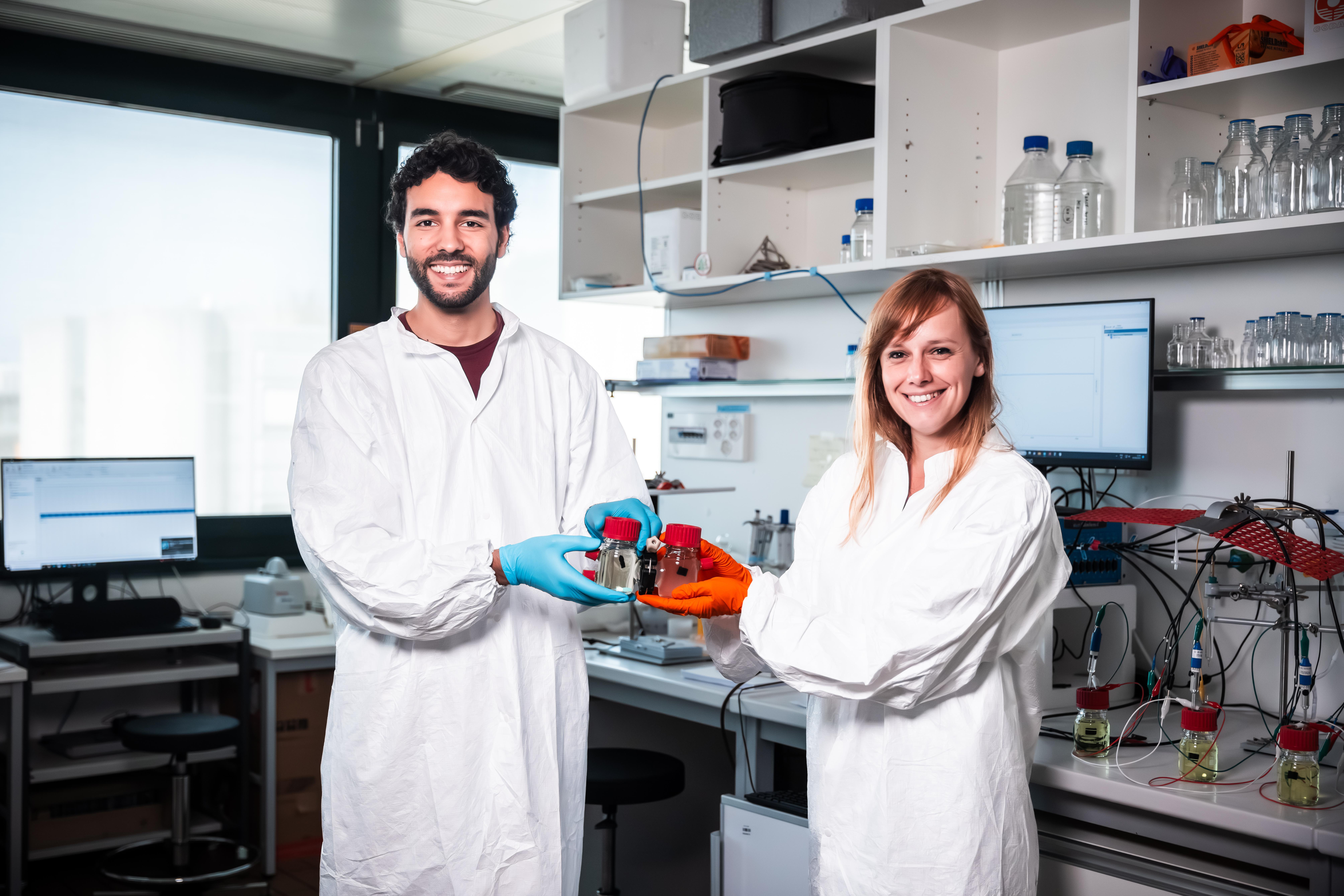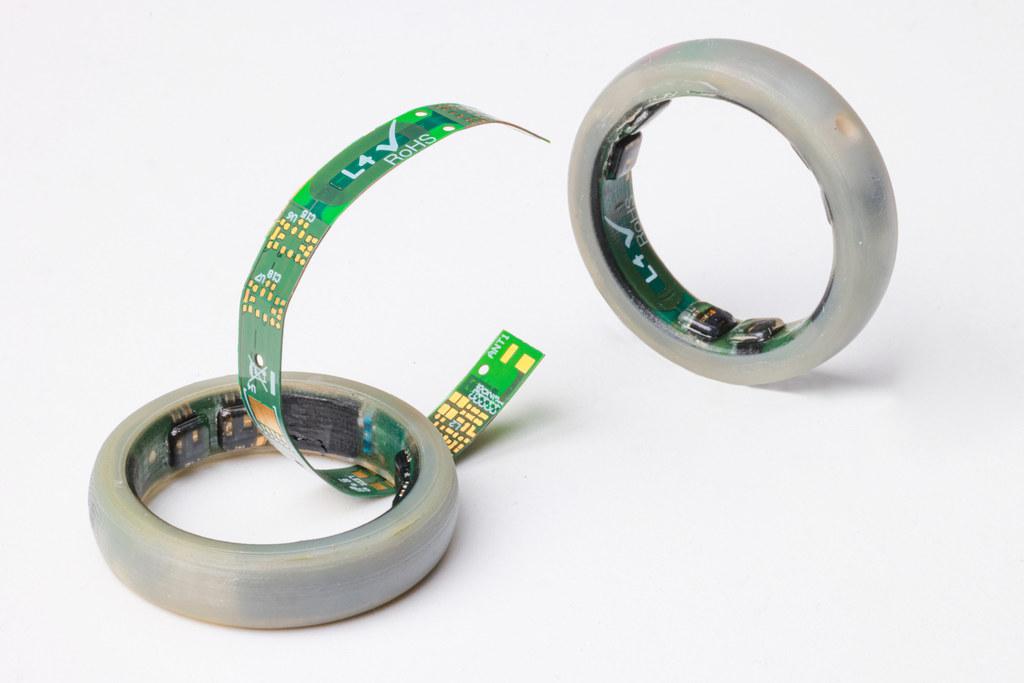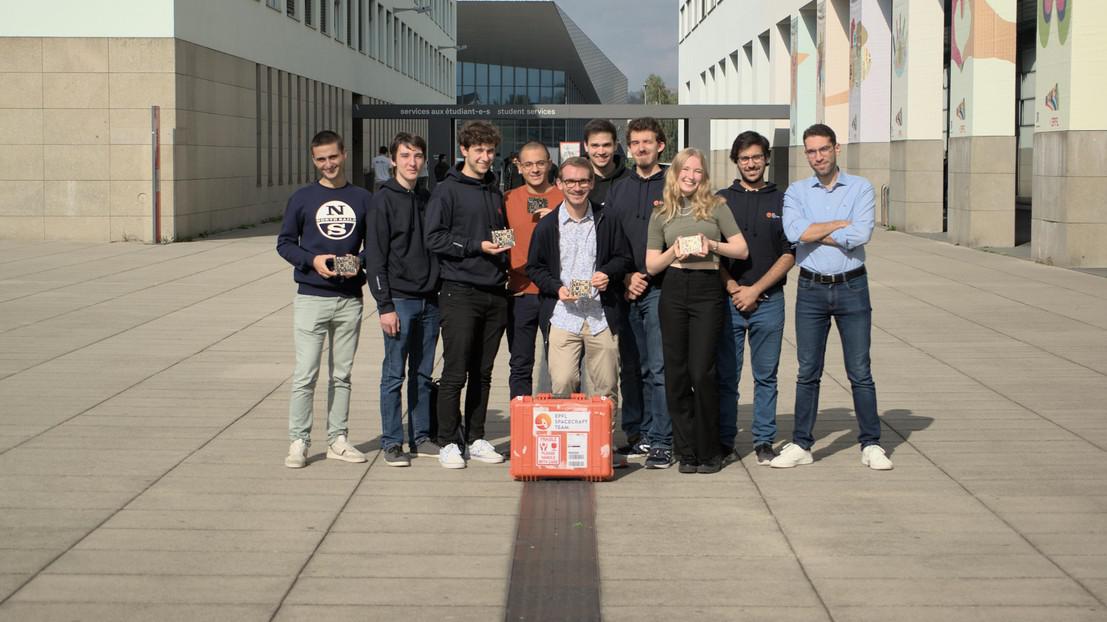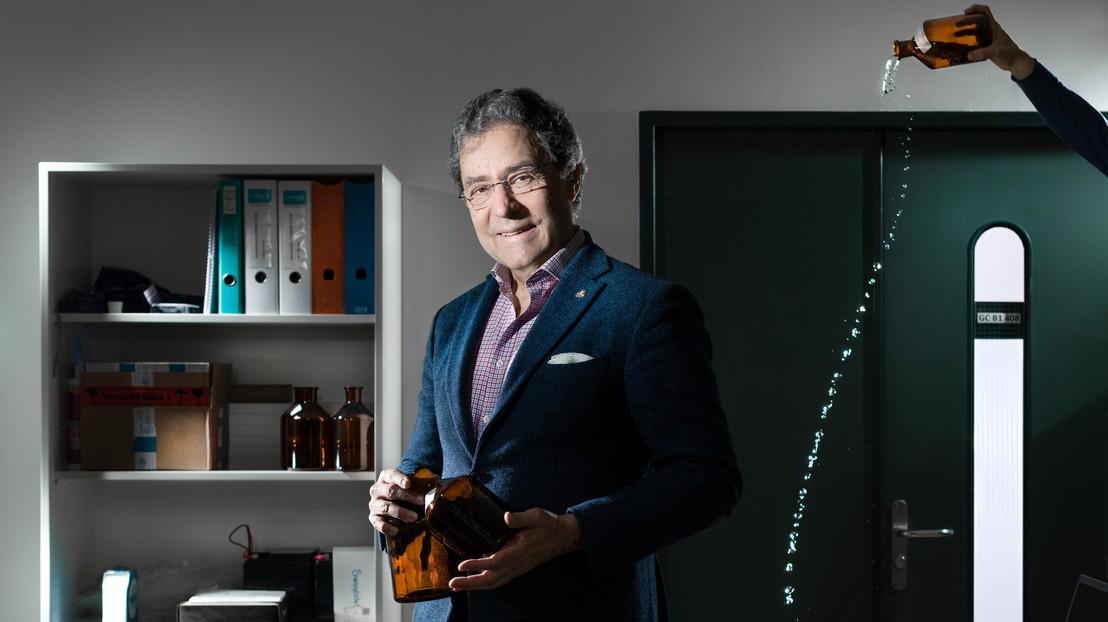We published nearly 300 news articles on EPFL's homepage in 2023, detailing the latest developments in science, academics, student life, startups and EPFL in general.
1. EPFL develops large language model for medical research
Large language models (LLMs) are deep-learning algorithms trained on vast amounts of text in order to map out billions of mathematical relationships between words. Engineers at EPFL's Natural Language Processing Lab, headed by Prof. Antoine Bosselut, have developed Meditron 7B and 70B - two open-source LLMs with 7 billion and 70 billion parameters, respectively, for use in medical applications. Meditron was trained on carefully curated, high-quality medical data, building on the open-access Llama 2 model released by Meta and with regular input from clinicians and biologists.
2. Amputees feel warmth in their missing hand
Solaiman Shokur and Silvestro Micera - both at the Bertarelli Foundation Chair In Translational Neuroengineering - have developed MiniTouch, a device that provides thermal feedback and that's built specifically for integration into wearable devices like prosthetics. MiniTouch consists of a thin, wearable sensor that can be placed over an amputee's prosthetic finger. The finger sensor detects the thermal properties - and specifically, the heat conductivity - of the object being touched. Their device uses the MetaTouch neuro-haptic technology developed by Metaphysiks, an EPFL spin-off. Of the 27 patients who tested the device, 17 reported a change in temperature in their phantom limb.
3. Bacteria generate electricity from wastewater

Prof. Ardemis Boghossian and her research group at EPFL's Laboratory of Nanobiotechnology have enhanced the ability of E. colibacteria to generate electricity. E. coli are a staple of biological research; the bacteria can be harnessed to produce electricity through a process known as extracellular electron transfer (EET). The EPFL scientists engineered E. coli to exhibit enhanced EET, making them highly efficient "electric microbes." Unlike previous methods that require specific chemicals for electricity generation, the bioengineered E. coli can produce electricity while metabolizing a variety of organic substrates.
4. Smart ring offers a simple way to monitor your health

Senbiosys, an EPFL spin-off, has unveiled a jewelry-like smart ring that incorporates all the health-monitoring features currently available in smart watches. The company's notable achievement in miniaturization - made possible thanks to the world's smallest sensor, developed at EPFL - appears to have major market potential: its recent crowdfunding campaign raised five times more capital than expected. Its sensors measure vital signs like heart rate, blood oxygen levels, breathing rate and blood pressure. The company hopes to improve prevention by supplying personal monitoring devices that alert users to significant changes in their health data.
5. Why we don't all develop post-traumatic stress disorder?
A new study led by Prof. Carmen Sandi and Simone Astori at EPFL's Behavioral Genetics Laboratory has revealed how the development of post-traumatic stress disorder (PTSD) is influenced by glucocorticoids, which are hormones (such as cortisol) that our body releases in response to stress. Their research provides significant insight into the behavioral and biological traits associated with PTSD vulnerability.
Also, major breakthroughs were made last year in the therapeutic approaches developed by Grégoire Courtine at EPFL and Jocelyne Bloch at the Lausanne University Hospital (CHUV). For instance, the new systems enabled a Parkinson's patient to once again walk almost naturally.
6. EPFL Spacecraft Team launches EPFL back into space

Nearly fifteen years after the launch of the SwissCube CubeSat, another piece of EPFL machinery went into space on 31 January 2023: an onboard computer named Bunny, built and designed by the student-run EPFL Spacecraft Team that's leading the CHESS mission. This misson aims to build and launch two CubeSats - miniature satellites in the form of 10x10x30cm cubes - in 2026, and Bunny is a prototype of the onboard computer.
7. The first climate strikes had an influence on Swiss residents
Climate activist Greta Thunberg made the headlines in September 2019 with her Fridays for Future climate strikes. Research has shown that these strikes have influenced the environmental behavior of Swiss residents. A survey carried out by EPFL's Laboratory on Human-Environment Relations in Urban Systems found that nearly 30% of respondents have adopted more environmentally responsible behavior with regard to transportation, purchasing habits and recycling. Respondents reported increased awareness and that they've made concrete changes, such as opting for alternatives to cars, buying local products and eating vegetarian meals. These findings illustrate the importance of combining personal engagement with political action to address climate change.
8. Andrea Rinaldo wins the "Nobel Prize in Water"

Prof. Andrea Rinaldo, an EPFL expert in hydrology, has been selected as the 2023 winner of the Stockholm Water Prize - the world's most prestigious award in water research, handed out by the king of Sweden. The work he's done throughout his career has provided important insight into a recurring mechanism in hydrological and ecological processes in drainage basins. What makes Rinaldo's approach unique is that he looks not only at surface phenomena but also at the underlying soil composition in areas where water streams converge. His research on "ecological corridors" has helped scientists predict the spread of invasive species and pathogens in a given region, such as during a cholera epidemic.
9. EPFL steps up its efforts on AI and clean energy
EPFL opened a new artificial-intelligence research center in late November 2023. It will leverage the extensive expertise of our faculty members and other researchers and foster cross-disciplinary research, education and innovation in the field of AI. It will also seek out partnerships with other stakeholders in society. In addition, we launched the Swiss AI Initiative with ETH Zurich, in order to position Switzerland as a leading global hub for the development and implementation of transparent, reliable AI. Infrastructure for this initiive will be provided by the new Alps supercomputer at the Swiss National Supercomputing Centre (CSCS). Also in association with ETH Zurich, we set up a Coalition for Green Energy and Storage in June to develop innovative storage and transportation systems for renewable energy carriers.
10. EPFL's Open Days a resounding success
Over 25,000 people attended EPFL's open house event on 29-30 April 2023, enjoying a unique opportunity to learn more about our School's research and joint initiatives with other organizations. Around 200 free activities were on offer, including demonstrations, talks, performances, lab tours, booths and games. This year's event covered five main topics - climate change, health, space, basic research and artificial intelligence. It also highlighted some of the interesting things we're doing with partner institutions. One of the most popular activities was the Scientastic workshop, where children could explore the wonders of science. A panel discussion on artificial intelligence and ChatGPT was also very successful.






